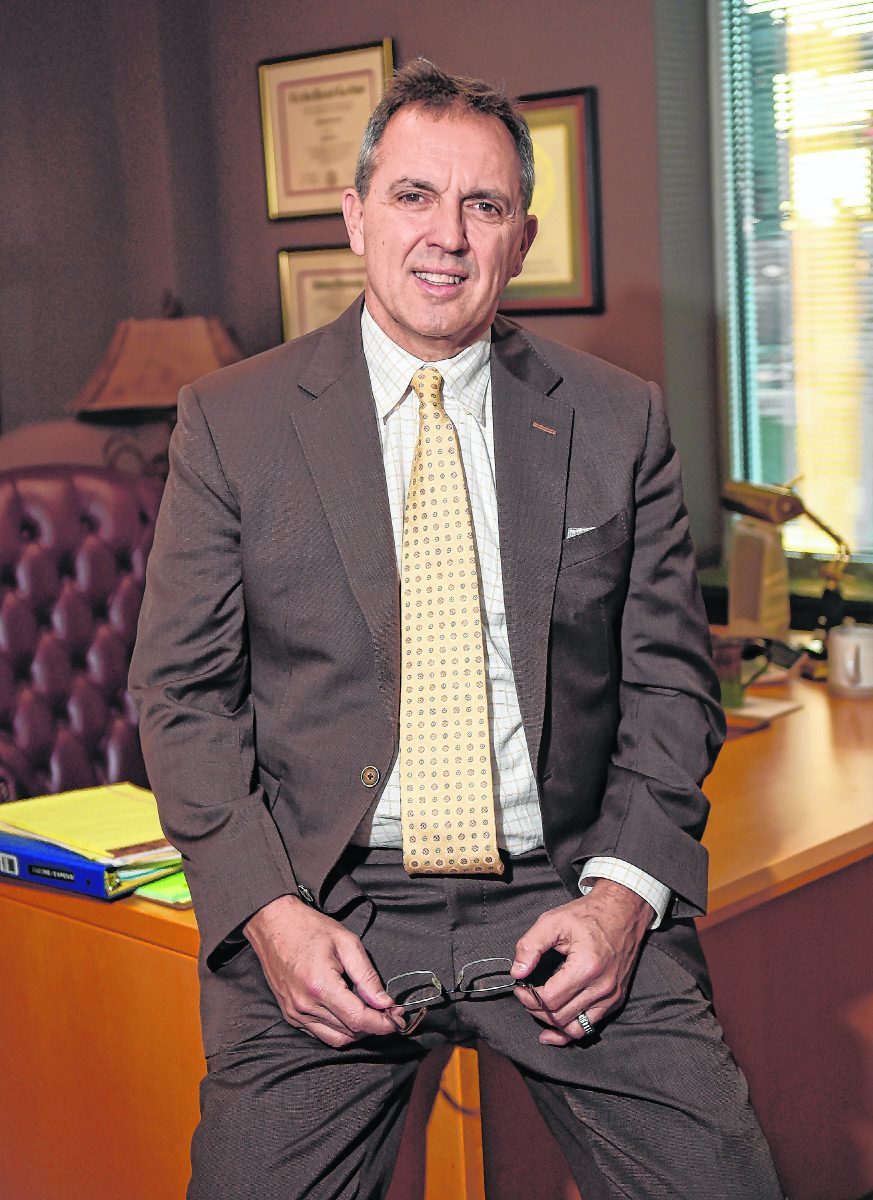Local courts will have the ability to delay or reschedule all non-essential hearings for the coming weeks as a precaution against the ongoing coronavirus crisis.
The Indiana State Supreme Court granted emergency relief to county courts, which essentially gives local judges permission to suspend all criminal and civil jury trials, among other court activities, through April 13, in light of the crisis.
During that time period, the court will take unique measures as a precaution, including holding hearings remotely, by telephone or video.
“It provides us the ability to continue non-essential hearings until the day when the courts can be opened for business as usual,” said Judge Peter Nugent of Johnson County Superior Court 2. “With what the government is trying to do with social distancing, it only makes sense to keep people apart.”
The Indiana Supreme Court approved the relief measures late Wednesday.
Local courts, including Johnson County Circuit Court, Johnson County Superior Courts 1, 2, 3 and 4, the Franklin City Court and Greenwood City Court, filed for emergency relief as temporary measures to protect the health and safety of the community and provide access to justice, Nugent said.
“We’re trying to do everything we can to limit exposure to this virus by following the rules,” he said. “Sometimes, we have to continue non-essential matters for a time down the road.”
There is a state statute that allows for the closure of courts in the case of natural disaster, disease outbreak or other calamity.
“We still recognize that there are people in the jail, and those people have rights. We want to make sure those rights are protected absolutely, positively,” Nugent said.
The emergency relief order allows for the delay — through April 13 — of all laws, rules and procedures, setting time limits for speedy trials in criminal and juvenile proceedings, public health and mental health matters, according to the order from the Indiana Supreme Court.
It also allows for those delays in judgments, support and other orders; and in all other civil and criminal matters before the courts of Johnson County.
Foremost has been the ability to push back criminal and civic jury trials in the county. The local courts are required to review the status of the coronavirus in the county by March 28, determining whether it is safe to hold jury trials. If so, those trials are to continue no later than April 13.
If precautions due to the coronavirus are still needed, local courts can petition the Supreme Court to extend the suspension of trials.
“Let’s be honest: How lucky am I to be able to get a jury in here in the coming month? You can’t ask people to not got to school, not go to work, not go to restaurants, but still go to jury duty,” Nugent said.
Civil hearings may be held by phone or video conferencing, and criminal hearings may be held remotely.
Any attorney, person self-representing themselves in a lawsuit or witness who may be displaying flu-like symptoms, or who has been exposed to someone with coronavirus, is given good cause to testify remotely or to delay it to another time. Doing so would not violate any statutory or constitutional rights, the court order said.
The Supreme Court order also allows local courts to reduce the number of court staff members working, as well as permit working remotely if feasible. Courts should still maintain sufficient staff to process emergency situations.
“This is unprecedented. I’ve never seen anything like this before. And it’s ever-changing. As the numbers go up, we’ll see different responses and different orders,” Nugent said. “We’re just going to keep seeing things coming. It’s this lump of clay that we just keep re-molding.”
Local courts are required to provide an update on the status of coronavirus in the county to the Indiana Supreme Court no later than April 6.





